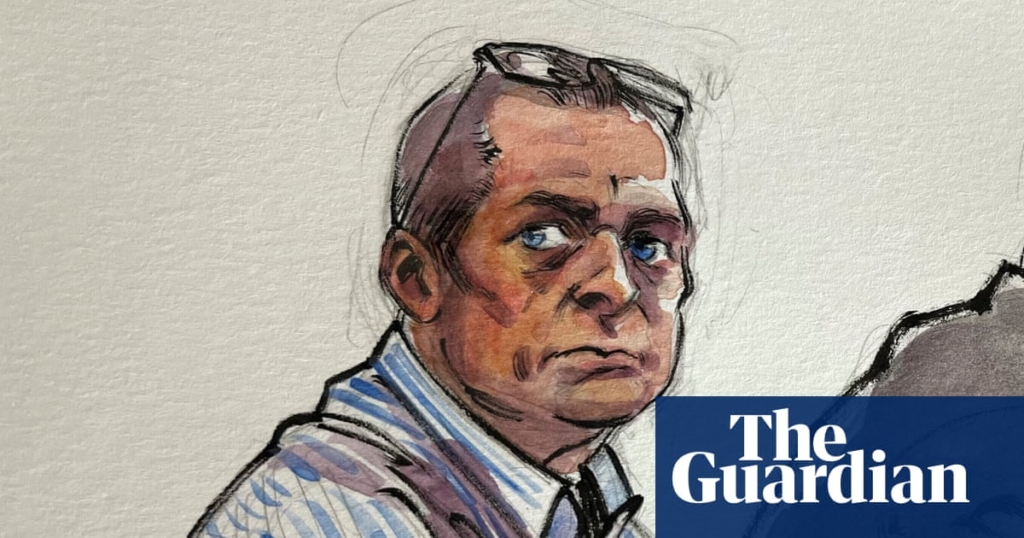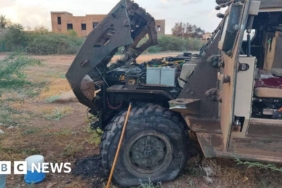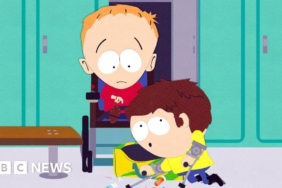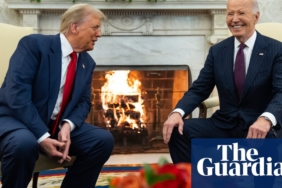A jury in the small Indiana town of Delphi convicted a man of murder on Monday in the 2017 killings of two teenage girls who vanished during an afternoon hike.
Deliberations stretched into a fourth day before jurors found Richard Allen guilty of the killings of 13-year-old Abigail Williams and 14-year-old Liberty German. The former drugstore worker was convicted of two counts of murder and two additional counts of murder while committing or attempting to commit kidnapping. Allen, 52, could now face up to 130 years in prison.
The 12 jurors along with alternates were sequestered throughout the trial, which began on 18 October in the girls’ home town of Delphi, a small north-west Indiana city where Allen also lived and worked as a pharmacy technician.
The seven women and five men began deliberations on Thursday afternoon after hearing closing arguments in the weeks-long murder trial.
A special judge oversaw the case. Superior court judge Fran Gull, along with the jurors, came from north-eastern Indiana’s Allen county.
The case has drawn outsized attention from true crime enthusiasts, with repeated delays, a leak of evidence, the withdrawal of Allen’s public defenders and their reinstatement by the Indiana supreme court. It has also been the subject of a gag order.
The Carroll county prosecutor Nicholas McLeland told jurors in his closing arguments that Allen was the man seen following the teens in a grainy cellphone video recorded by one of the girls, known as Abby and Libby, as they crossed an abandoned railroad trestle called the Monon High Bridge.
“Richard Allen is Bridge Guy,” McLeland told jurors. “He kidnapped them and later murdered them.”
McLeland also said it was Allen’s voice that was captured on German’s cellphone video telling the teens “down the hill” after they had crossed the bridge just before vanishing on 13 February 2017. Their bodies were found the next day, their throats cut, in a wooded area about a quarter-mile (less than half a kilometer) from that bridge.
An investigator testified during trial that Allen told him and another officer that on the day the teens vanished he was wearing a blue or black Carhartt jacket, jeans and a beanie – clothing similar to that worn by the person seen in German’s cellphone video.
McLeland recapped evidence in his closing that an unspent bullet found between the teens’ bodies “had been cycled through” Allen’s .40-caliber Sig Sauer handgun. An Indiana state police firearms expert told the jury her analysis tied the round to Allen’s handgun.
But a firearms expert called by the defense questioned the state police bullet analysis, and attorney Bradley Rozzi dismissed it in his closing arguments as a “magic bullet”, saying investigators had made an “apples to oranges” comparison of the unspent round to one fired from Allen’s gun.
Allen was arrested in October 2022. He became a suspect after a retired state government worker who had volunteered to help police with the investigation found paperwork in September 2022 showing that Allen had contacted authorities two days after German and Williams’s bodies were found. That paperwork indicated that Allen had told an officer he had been on the hiking trail the afternoon the girls went missing, according to testimony.
McLeland noted in his closing that Allen had repeatedly confessed to the killings – in person, on the phone and in writing. In one of the recordings he replayed for the jury, Allen could be heard telling his wife: “I did it. I killed Abby and Libby.”
Allen’s defense argued that Allen’s confessions were unreliable because he was facing a severe mental health crisis while under the pressure and stress of being locked up in isolation, watched 24 hours a day and taunted by people incarcerated with him. The defense called witnesses, including a psychiatrist, who testified that months in solitary confinement could cause a person to become delirious and psychotic.





Yorumlar kapalı.